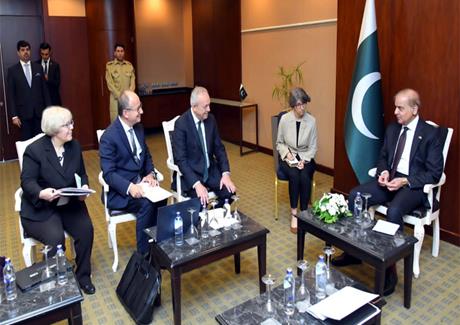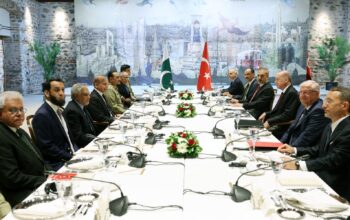By Staff Reporter
ISLAMABAD: Pakistan has approved a new investment policy for 2023 that aims to attract foreign and domestic investors by offering incentives, easing regulations, and creating special economic zones, the government said.
The Pakistan Investment Policy (PIP) 2023 was approved by the federal cabinet through a summary circulated by Prime Minister Shehbaz Sharif, who heads a special council that includes the army chief and provincial chief ministers to facilitate foreign investment.
The policy is expected to bring in $20-25 billion in investment over the next few years. It was developed in consultation with the World Bank, International Finance Corporation, and provincial and federal institutions.
The policy is based on four main pillars: reducing the cost of doing business, streamlining business processes, facilitating ease of doing business through the creation of industrial clusters and special economic zones, and promoting greater convergence between trade, industrial, and monetary policies.
The new policy allows foreign investors to invest in all sectors except for casinos, alcohol manufacturing, arms and ammunition, atomic energy, high explosives, currency, and mining.
It also eliminates the minimum equity requirement for foreign investment and permits foreign investors to remit their entire profit abroad in their own currency.
Foreign investors will also be able to lease land without restriction and transfer any land they hold without limitation. Restrictions on foreign real estate developers have been lifted, and there will be no distinction between foreign and domestic developers.
The policy also grants foreign investors special protection against expropriation, unfair treatment, and disputes. It also simplifies the regulations and guidelines for setting up businesses and provides incentives based on performance and location.
The government said the policy was aimed at reversing the declining trend of Pakistan’s GDP-to-investment ratio, which is projected to fall from 15 percent in 2020 to 13.3 percent in 2023.
It also said the policy would help improve Pakistan’s economic complexity by diversifying its products and services for export and increasing its value-added activities.
The policy comes amid growing interest from Saudi Arabia and the United Arab Emirates in Pakistan’s information technology and agriculture sectors, according to Minister of State for Petroleum Musadik Malik.
Malik told a private television channel that Saudi Arabia had earmarked $24 billion for investment purposes, while the UAE had allocated $22 billion to explore opportunities in these sectors.
Pakistan’s economy has been battered by the coronavirus pandemic, floods, high inflation, and political unrest. Its foreign exchange reserves currently stand at $4.46 billion, while its external debt repayments will remain high over the next few years, with approximately $25 billion due in FY 2024.
Copyright © 2021 Independent Pakistan | All rights reserved




